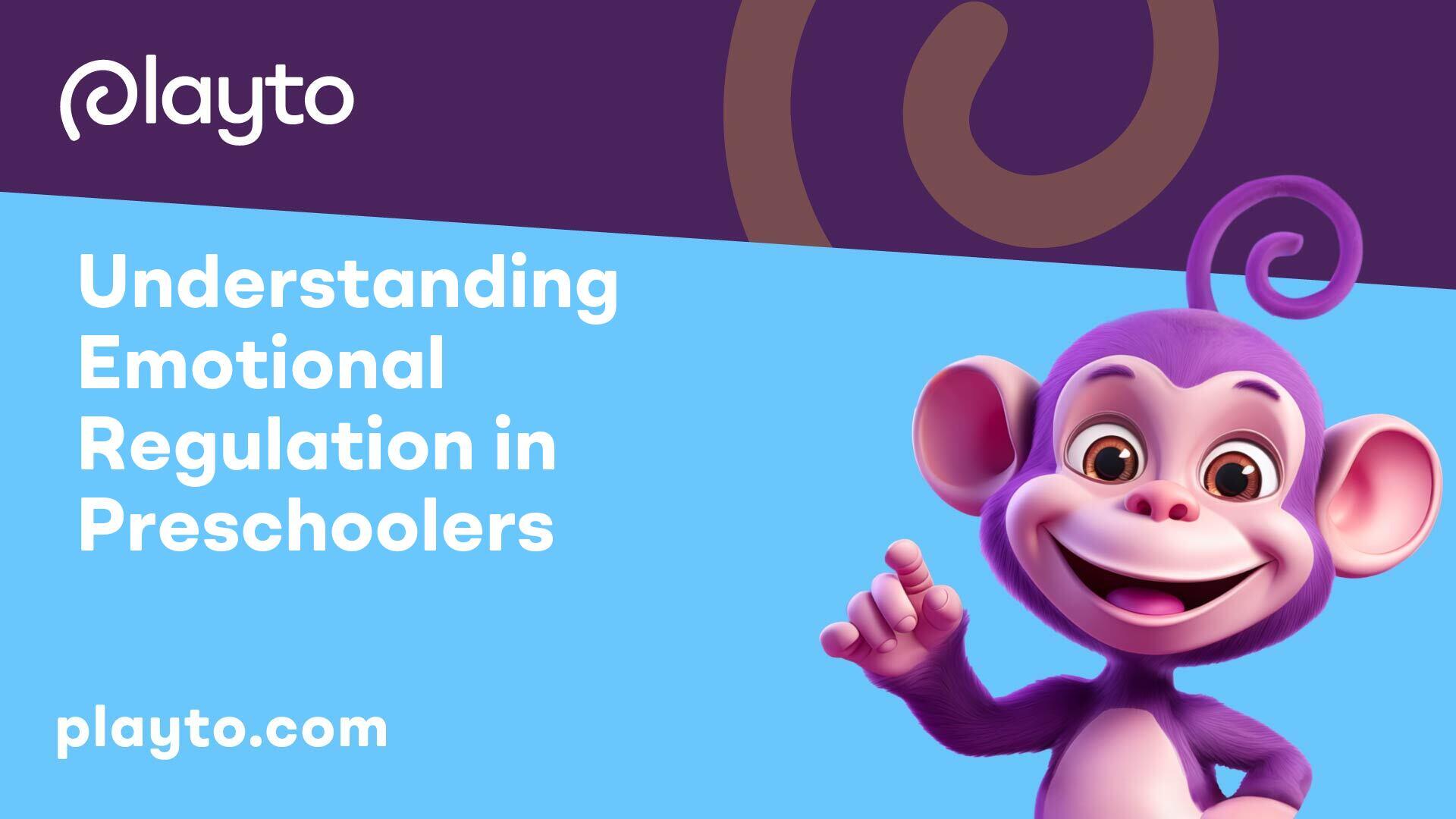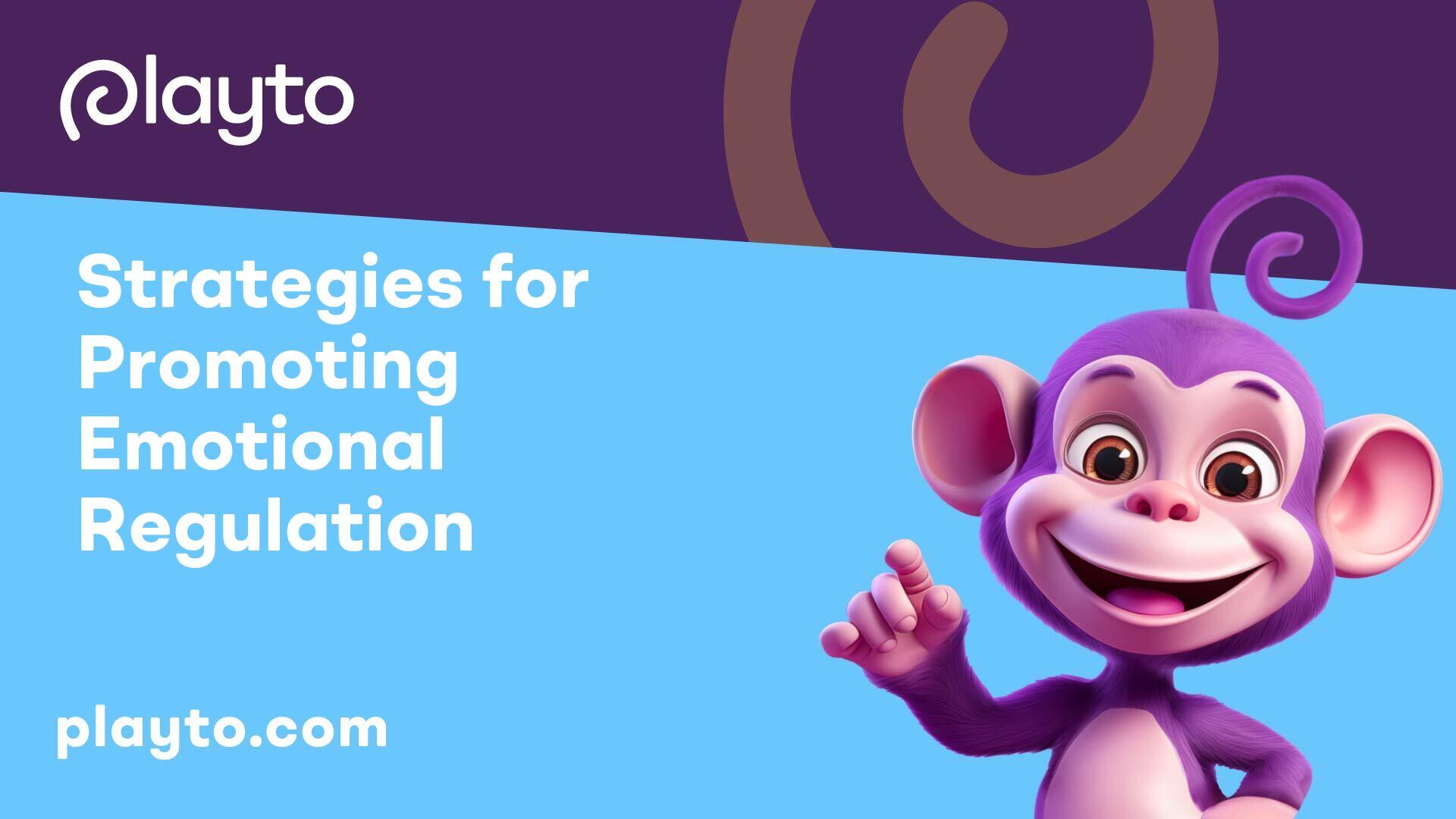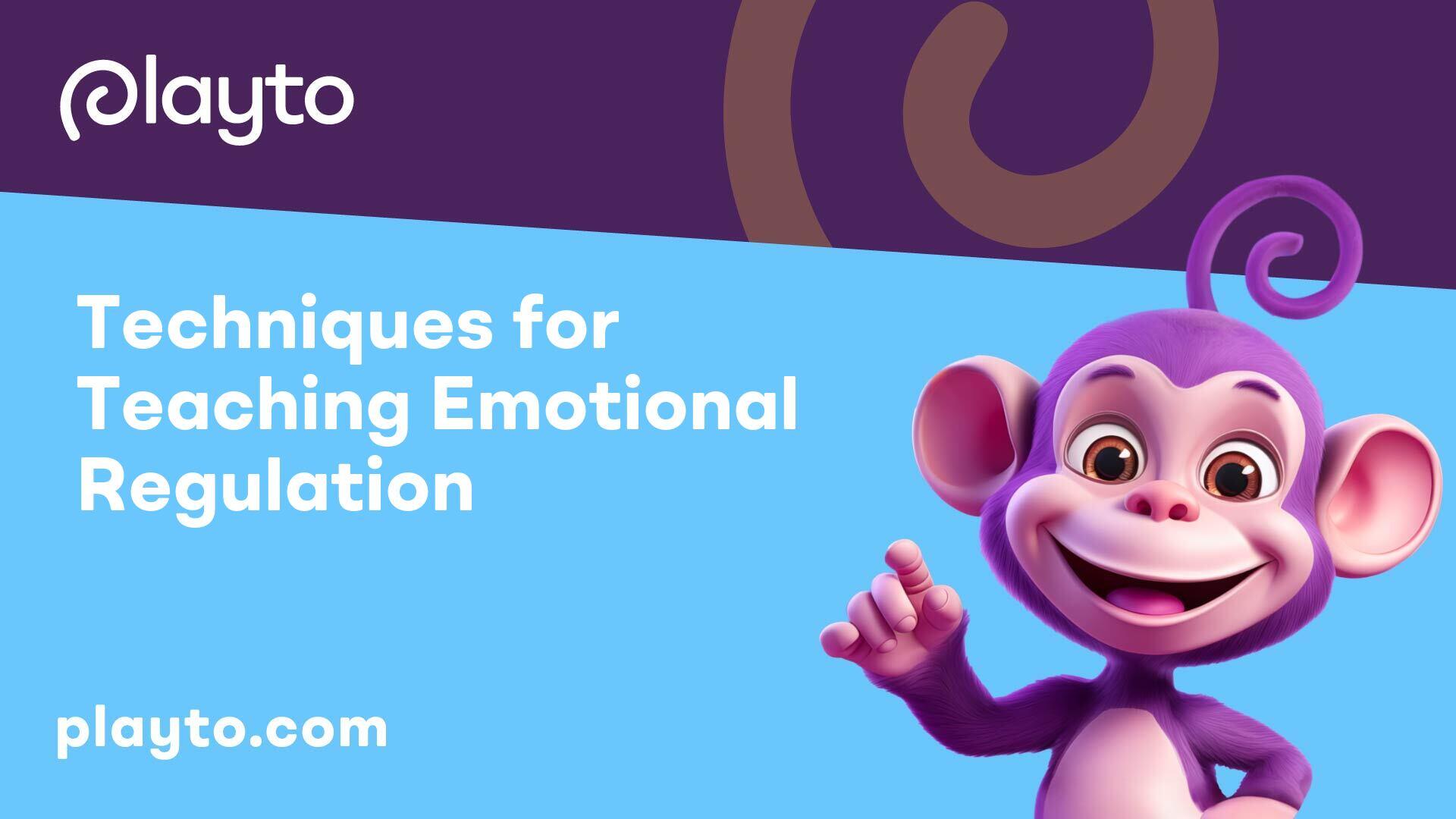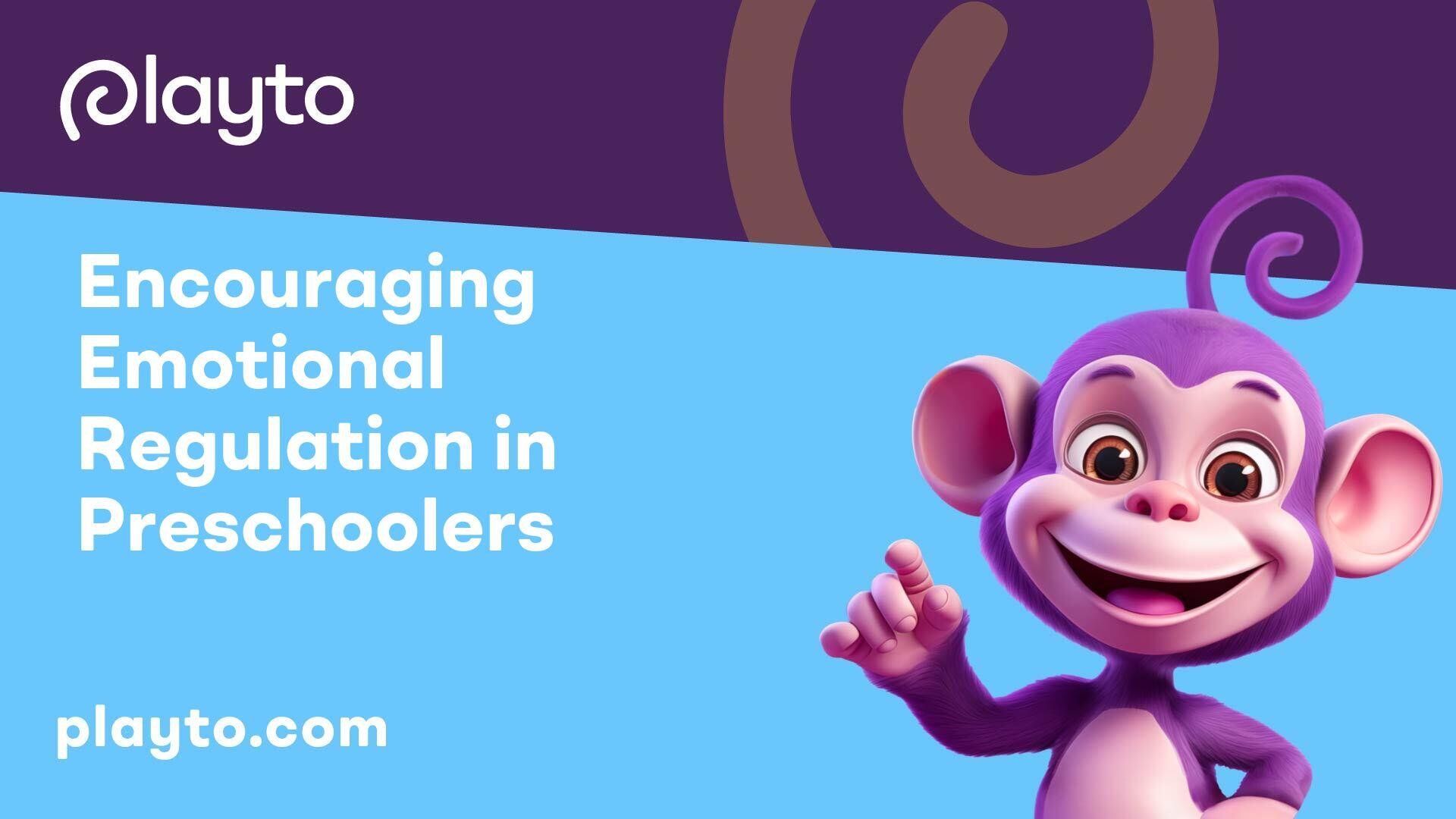
Understanding Emotional Regulation in Preschoolers
When it comes to encouraging emotional regulation in preschoolers, it is imperative to recognize the significance of this skill in their overall development. Emotional regulation plays a crucial role in shaping a child's behavior, social interactions, and academic success during their formative years.
Importance of Emotional Regulation
The ability to regulate emotions allows preschoolers to manage their feelings effectively, resist impulsive behavior, and navigate social situations with greater ease. Children who exhibit strong emotional regulation skills are better equipped to handle challenges, develop positive relationships, and thrive in various learning environments.
For some preschoolers, such as those with ADHD or anxiety, mastering self-regulation may require additional support and guidance from caregivers and educators. By fostering emotional regulation early on, children can build a solid foundation for mental and emotional well-being as they progress through their academic journey.
Impact on Learning and Development
Emotional regulation has a profound impact on a preschooler's learning outcomes and overall development. Children who are able to regulate their emotions tend to exhibit higher levels of focus, concentration, and task persistence, which are essential for academic success.
Studies have shown that emotional regulation is closely linked to cognitive abilities, social competence, and problem-solving skills in young children. By cultivating emotional regulation skills early on, educators and caregivers can create supportive environments that enhance preschoolers' learning experiences and promote positive social interactions.
When exploring strategies for promoting emotional regulation in preschoolers, it is important to consider the unique needs and challenges faced by each child. By recognizing the importance of emotional regulation and its impact on learning and development, caregivers and educators can create nurturing environments that support the social-emotional growth of every preschooler under their care.

Strategies for Promoting Emotional Regulation
When it comes to encouraging emotional regulation in preschoolers, various strategies can be employed to help young children develop the skills needed to manage their feelings and behaviors effectively. In this section, we will explore three key methods for promoting emotional regulation in preschoolers: mindfulness practices, parental involvement, and developing self-regulation skills.
Mindfulness Practices
Introducing young children to mindfulness practices can be a powerful tool in fostering emotional regulation. Mindfulness encourages children to focus on the present moment, helping them become more aware of their thoughts, emotions, and bodily sensations. By teaching children to stay present and grounded, mindfulness can aid in reducing impulsivity and promoting self-control.
Practicing mindfulness can teach preschoolers to regulate their emotions by guiding them to acknowledge their feelings without judgment. This can be particularly beneficial for children who struggle with impulsive behavior or find it challenging to manage their emotions effectively. Mindfulness can instill a sense of calm and improve emotional well-being in young children.
For families looking to incorporate mindfulness into their daily routines, parent training programs can be a valuable resource. These programs provide parents with the knowledge and tools to support their children in developing emotional regulation skills through mindfulness practices. By engaging in mindfulness exercises together, parents and children can create a nurturing environment that promotes emotional awareness and self-regulation.
To learn more about incorporating mindfulness practices in daycare settings, consider exploring our article on integrating music therapy in daycare.
Parental Involvement
Parents play a crucial role in helping preschoolers learn to regulate their emotions. Parental involvement in a child's emotional development can have a significant impact on their ability to manage feelings and behaviors effectively. By coaching children through challenging situations and providing support during emotional struggles, parents can help their children build resilience and coping skills.
Parental involvement in promoting emotional regulation involves creating a supportive and understanding environment where children feel safe expressing their emotions. Parents can model healthy emotional responses and provide guidance on how to navigate difficult feelings. By fostering open communication and offering a safe space for emotional expression, parents can empower their children to develop self-regulation skills.
To further explore the importance of parental involvement in emotional regulation, delve into our article on the role of puppetry in early childhood education.
Developing Self-Regulation Skills
Self-regulation is a fundamental skill that preschoolers need to learn and practice. Teaching children how to regulate their emotions and behaviors can aid in improving their ability to focus, solve problems, and interact positively with others. One effective method for developing self-regulation skills is to break activities into smaller, more manageable parts.
By breaking down tasks into smaller steps, children can approach challenges in a systematic and organized manner. This approach helps children feel less overwhelmed and more in control of their actions. Through guided practice and encouragement, children can learn to self-regulate and work through challenges independently.
For further insights on developing self-regulation skills in young children, consider exploring our article on benefits of montessori-inspired daycare activities.
By incorporating mindfulness practices, encouraging parental involvement, and focusing on developing self-regulation skills, educators and parents can work together to support preschoolers in their emotional development journey. These strategies create a nurturing environment that fosters emotional awareness, resilience, and effective self-regulation skills in young children.

Techniques for Teaching Emotional Regulation
When it comes to encouraging emotional regulation in preschoolers, utilizing effective techniques can play a significant role in helping young children manage their emotions and navigate social interactions. Here are three key strategies that can be employed to teach emotional regulation skills to preschoolers:
Coaching Through Challenges
One impactful technique for teaching emotional regulation is coaching children through challenges. By providing guidance and support during moments of emotional distress, caregivers and educators can help children develop the necessary skills to recognize and manage their emotions effectively. Encouraging children to verbalize their feelings and offering positive reinforcement for using appropriate coping strategies can empower them to regulate their emotional responses in a constructive manner.
Breaking Activities into Smaller Parts
Breaking down activities into smaller, manageable parts is another beneficial approach to promoting emotional regulation in preschoolers. By simplifying tasks and setting achievable goals, children can experience success in incremental steps, boosting their confidence and sense of accomplishment. This method not only fosters a sense of control and mastery but also helps children develop patience and perseverance in the face of challenges.
Dialectical Behavior Therapy (DBT)
Dialectical behavior therapy (DBT) is a structured therapeutic approach that can be adapted to support emotion regulation in children, including preschoolers. DBT focuses on teaching individuals practical skills to manage their emotions, improve interpersonal relationships, and cope with stress effectively. While typically used with older children and adolescents, elements of DBT, such as mindfulness techniques and distress tolerance strategies, can be modified and incorporated into interventions tailored for preschool-aged children.
By incorporating these techniques into preschool settings, caregivers and educators can create a supportive environment that nurtures the emotional development of young children. Teaching emotional regulation skills early on not only equips preschoolers with essential tools for managing their feelings but also lays a strong foundation for their social and academic success. For more insights on supporting children's emotional well-being, explore our articles on incorporating STEM learning in daycare and benefits of multilingual education in daycare.
Academic Success and Emotional Regulation
Emotional regulation skills in preschoolers have a significant impact on their academic success and overall productivity in the classroom. These skills are closely linked to teacher-reported success, standardized achievement scores, and the relationship between students and teachers.
Teacher-Reported Success
According to a study involving 325 five-year-old children (NCBI), emotion regulation skills positively correlated with teacher reports of academic success and productivity in the classroom. Kindergartners who displayed better emotional regulation were more likely to achieve higher scores on teacher-reported academic success. This suggests that children who struggle with regulating their emotions may face challenges in learning and may be less productive during classroom activities.
Standardized Achievement Scores
The same study indicated that emotional regulation skills also played a crucial role in standardized early literacy and math achievement scores. Children who demonstrated strong emotional regulation abilities tended to perform better on standardized measures of academic achievement. This association remained significant even after adjusting for factors like IQ, emphasizing the significant impact of emotional regulation on academic outcomes.
Relationship with Student and Teacher
The quality of the relationship between students and teachers was identified as a key predictor of academic success and productivity in the classroom. A positive and supportive relationship with the teacher significantly influenced children's motivation to learn, classroom engagement, and ultimately, their academic success. Positive student-teacher relationships were associated with improved standardized math and early literacy scores.
Furthermore, the study highlighted that behavior problems could mediate the relationship between emotional regulation and academic success. Children facing challenges in regulating their emotions were more likely to exhibit behavior problems that negatively impacted their academic success. Addressing emotional regulation through interventions and support programs can help mitigate behavior issues and improve academic outcomes.
In conclusion, emotional regulation plays a vital role in promoting academic success and classroom productivity in preschoolers. By fostering strong emotional regulation skills and nurturing positive relationships between students and teachers, educators can create an environment that supports children's emotional well-being and academic achievements.
Building Emotional Self-Regulation in Young Children
The development of emotional self-regulation in young children plays a significant role in their well-being and overall growth. Understanding the importance of emotional self-regulation is crucial as it empowers children to navigate their emotions effectively. Children with strong emotional regulation skills are better equipped to cope in social settings, manage relationships, and experience reduced feelings of shame and anxiety.
Emotional self-regulation serves as a foundation for academic readiness, leading to improved learning outcomes and higher academic achievement. According to Brightwheel, children who possess these skills encounter fewer emotional distractions in academic environments, resulting in enhanced grades and standardized test scores.
Effective Teaching Strategies
Implementing various strategies is key to fostering emotional self-regulation in young children. Consistent routines, calm-down techniques, and opportunities to practice expressing feelings are beneficial in nurturing these essential skills. Positive interactions with adults and engaging activities tailored to emotional awareness can significantly contribute to children's emotional development.
Engaging activities such as sensory bottles, music-inspired art, dragon breathing exercises, and mindfulness practices are effective tools in teaching emotional regulation to preschoolers. Additionally, activities involving identifying character emotions, blowing bubbles, and utilizing toilet paper roll puppets can make learning about emotions interactive and engaging [1].
Emotional Dysregulation in Some Children
While many children naturally progress in their emotional self-regulation journey, some may face challenges with emotional dysregulation. Emotional dysregulation refers to difficulties in recognizing, managing, and appropriately displaying emotions. It can manifest in heightened emotional responses, impulsivity, and struggles with emotional expression.
Crafts, calming activities, and specialized breathing exercises can be valuable tools in assisting children who experience emotional dysregulation. By providing a supportive environment and tailored interventions, educators and caregivers can help these children develop essential emotional regulation skills and improve their ability to navigate complex emotional experiences successfully.
As children continue to grow and navigate the world around them, the ability to regulate emotions becomes a crucial skill that not only impacts their immediate well-being but also lays the groundwork for future social interactions, academic success, and overall emotional intelligence.
Enhancing Emotional Intelligence in Early Childhood
In the realm of early childhood development, nurturing emotional intelligence in young children plays a vital role in their overall well-being and success. Let's explore the impact of emotional intelligence, strategies for developing emotional intelligence, and the renowned RULER acronym designed to enhance emotional intelligence in early childhood.
Impact of Emotional Intelligence
Emotional intelligence encompasses a collection of skills associated with monitoring one’s own and others’ emotions. It significantly influences various aspects such as attention, memory, learning, relationship building, and both physical and mental health [2]. Children with higher emotional intelligence tend to exhibit improved attention, positive relationships, behavior regulation, empathy, and enhanced academic performance. This underlines the profound importance of nurturing emotional intelligence during early childhood to set a solid foundation for holistic development [2].
Developing Emotional Intelligence
When it comes to cultivating emotional intelligence in young children, incorporating educational activities that focus on recognizing, understanding, and regulating emotions is key. Reading and discussing children's books that highlight emotions can help children identify and relate to different emotional experiences. Educators, like Ms. Coz, carefully choose high-quality literature and engage students in meaningful discussions around emotions [3].
The RULER Acronym
The RULER acronym encapsulates five essential skills designed to bolster emotional intelligence in early childhood:
- Recognizing Emotions: Teaching children to identify and label their own emotions and those of others.
- Understanding Emotions: Helping children comprehend the triggers and consequences of various emotions.
- Labeling Emotions: Encouraging children to articulate their feelings accurately.
- Expressing Emotions Appropriately: Guiding children on how to communicate their emotions effectively.
- Regulating Emotions: Equipping children with strategies to manage and regulate their emotions in different situations.
By incorporating the RULER acronym into educational practices, teachers and caregivers can empower children to develop robust emotional intelligence skills. This comprehensive approach not only fosters emotional well-being but also enhances children's readiness to engage in learning activities effectively [2].
Enhancing emotional intelligence in early childhood is a fundamental aspect of promoting social and emotional health in young learners. By emphasizing the importance of emotional intelligence, implementing effective teaching strategies, and utilizing tools like the RULER acronym, educators can create supportive environments that nurture the emotional growth and well-being of children during their formative years.
Supportive Environments for Emotional Development
Creating a nurturing environment that fosters emotional development in preschoolers is crucial for their overall well-being and growth. By emphasizing the impact of the caregiving environment, nurturing relationships, and engaging families in developmental processes, caregivers can significantly support young children's social-emotional development.
Impact of Caregiving Environment
According to Virtual Lab School, the quality of the caregiving environment plays a vital role in shaping a child's social-emotional development. Caregivers should focus on creating an environment that promotes healthy social interactions and relationship building, especially for vulnerable infants and toddlers who may have experienced stress, poverty, or adverse early experiences. Providing a safe and supportive environment can help preschoolers develop crucial emotional regulation skills and form secure attachments.
Nurturing Relationships
Nurturing and responsive relationships are foundational in supporting emotional development in young children. Caregivers can positively impact brain development in infants and toddlers by establishing consistent routines, safe materials for exploration, and individualized care [4]. By fostering a caring and responsive bond with each child, caregivers create a sense of security and trust that enables children to explore, learn, and thrive emotionally.
Engaging Families in Development
Incorporating families into the social-emotional development of preschoolers is essential, particularly in situations of high stress like poverty or domestic violence. Engaging families in the developmental process helps create a holistic support system for young children. Caregivers should focus on building trusting relationships with families, providing resources and information on promoting self-regulation skills, and encouraging exploration opportunities for children. By involving families in the emotional growth of their children, caregivers create a united front that nurtures and promotes healthy social-emotional development in preschoolers.
By prioritizing a supportive caregiving environment, nurturing relationships, and involving families in the developmental journey, caregivers can lay a strong foundation for emotional regulation and social-emotional skills in preschoolers. These strategies contribute to a positive and enriching early learning experience that sets the stage for children's emotional well-being and success in the future.
Gender Differences in Social-Emotional Competence
Exploring the realm of social-emotional competence in young children, it becomes evident that gender plays a role in how these skills develop. Below we delve into the distinctions in social-emotional competence between boys and girls, key findings from recent research, and strategies for addressing gender disparities.
Social-Emotional Competence in Boys vs. Girls
Research, such as that highlighted by NCBI, identifies noteworthy gender differences in social-emotional development among Chinese children. Boys tend to exhibit more externalizing problems, while girls demonstrate strengths in areas such as social compliance, empathy, prosocial behaviors, and emotion regulation. Understanding these distinctions can guide interventions tailored to each gender's specific needs in fostering social-emotional competencies.
Key Findings from a Research Study
Recent studies have shed light on the intricate patterns of social-emotional development in young children, highlighting the nuanced differences between boys and girls. By examining key findings from research endeavors, educators and caregivers gain valuable insights into the factors influencing social-emotional competence in diverse settings. These findings provide foundational knowledge for implementing targeted interventions to support children's emotional growth effectively.
Addressing Gender Disparities
Recognizing and addressing gender disparities in social-emotional competence is pivotal for creating inclusive and supportive environments for all children. Educators and caregivers play a crucial role in fostering a nurturing setting that values and respects the unique emotional needs of each child, regardless of gender. By implementing tailored interventions and personalized strategies, gender disparities in social-emotional development can be minimized, creating an equitable platform for all children to thrive emotionally and socially.
Understanding the nuanced differences in social-emotional competence between boys and girls equips educators and caregivers with the insights needed to tailor interventions effectively. By addressing gender-specific needs and promoting a supportive environment that values emotional growth irrespective of gender, we can cultivate a generation of emotionally resilient and socially adept individuals in preschool settings.
References
[1]: https://mybrightwheel.com/blog/emotional-self-regulation-strategies-for-young-children
[2]: https://www.naeyc.org/resources/pubs/yc/mar2017/teaching-emotional-intelligence
[3]: https://www.naeyc.org/resources/pubs/yc/mar2018/promoting-social-and-emotional-health
[4]: https://www.virtuallabschool.org/infant-toddler/social-and-emotional-development/lesson-3
